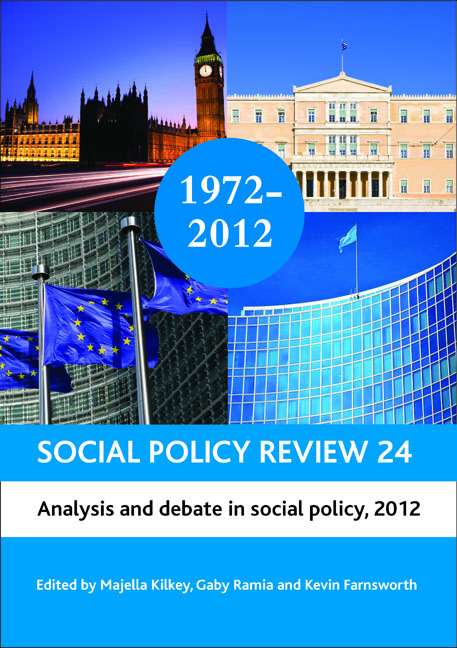five - Division and opposition: the Health and Social Care Bill 2011
Published online by Cambridge University Press: 07 September 2022
Summary
Introduction
In mid-July 2010, a few weeks after the creation of the Coalition government, Andrew Lansley, Secretary of State for Health, issued a heavily leaked White Paper called Equity and excellence: liberating the NHS (DH, 2010). Despite the fact that its package of proposals had featured in neither the Conservative Party nor Liberal Democrat general election manifestos, the White Paper contained a radical programme of reform for the National Health Service (NHS), contradicting the Conservative Party's repeated reassurances before the general election that there would be no imposed top-down reorganisation of the NHS as well as an explicit statement to that effect in the post-election Coalition agreement (HM Government, 2010). Although Lansley insisted that the proposals should have come as no surprise to anyone following the development of Conservative health policy during their years in opposition, some organisations claimed that the government did not have a democratic mandate for its proposals.
From the outset, the proposals were controversial. The trade union, UNISON, which represents 400,000 workers in the NHS, described the reforms as heralding ‘the end of the NHS as we know it’ (UNISON, 2010); the then shadow health spokesman, Andy Burnham declared that they ‘represent the break-up of the NHS’ (Ramesh, 2010); the influential King's Fund think tank described them as ‘the most radical restructuring of the NHS since its inception’ (cited by Peedell, 2011); and Kinglsey Manning of Tribal (a private company providing health services) claimed that the proposals could lead to ‘the denationalisation of healthcare services in England’ (Quinn, 2010). Numerous organisations regarded the proposals as ‘accelerating the trend to privatisation’ (Quinn, 2010).
In these circumstances, it is perhaps unsurprising that the passage of the proposals into law has proven tortuous and troublesome. The Health and Social Care Bill was introduced into Parliament in January 2011 but the parliamentary process had to be ‘paused’ the following April for a twomonth ‘listening exercise’ under the auspices of a new, specially mandated quango, the Future Forum, when Liberal Democrat MPs signalled that they would not support the Bill in its original form. A revised version of the Bill was eventually passed to the House of Lords where, at the time of writing (December 2011), it faced further amendment, at the least. Although they had their supporters, the White Paper and Bill faced sustained extra-parliamentary criticism from July 2010.
- Type
- Chapter
- Information
- Social Policy Review 24Analysis and Debate in Social Policy, 2012, pp. 97 - 114Publisher: Bristol University PressPrint publication year: 2012



